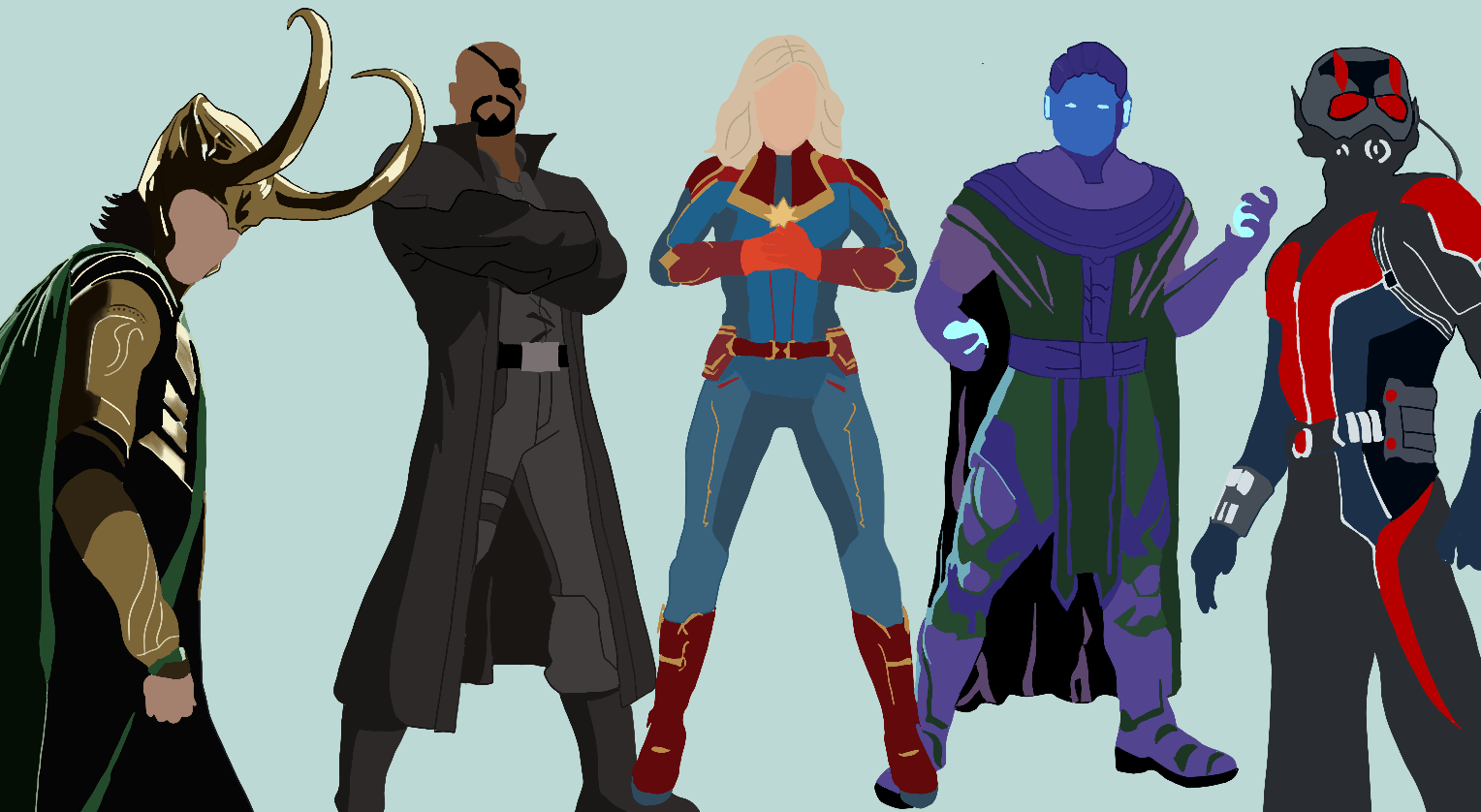The Marvel Cinematic Universe (MCU) has grown into what is probably one of the biggest, most successful film franchises in history. Unfortunately, the bigger a franchise becomes, the harder it falls, and the MCU is no exception.
In a post-Covid and post-Avengers: Endgame world, Marvel has struggled to produce the consistently top-tier content that the company was known for. This isn’t the end time for Marvel, though—I would consider it more of a transition period.
The MCU spans 33 films and 22 shows, according to my records, though some people would disagree with me. I include some shows within the MCU canon that weren’t made by Marvel Studios but based on it, like Daredevil and Marvel’s Runaways. With that many projects under its belt, the MCU is obviously going to have some misses.
The bad news is that the misses have mostly occurred within the past three years, and that’s not a coincidence.
I’m going to preface by stating that Marvel is currently getting more hate than it deserves. Loki just finished its second season, and although it started out slow, it had a strong and satisfying finish. The Marvels is getting panned by the “anti-woke mob” that overshadows the love and attention it deserves. Don’t even get me started on the masterpiece that was Guardians of the Galaxy Vol. 3.
The other side of the coin isn’t pretty. Secret Invasion was possibly the worst television series the MCU has made yet, and Ant-Man and the Wasp: Quantumaniawas one of the most disappointing experiences I’ve had in a movie theater. 2022’s Thor: Love and Thunder wasted one of the best villains that comic books have had to offer through Gorr the God Butcher, and that’s with Christian Bale giving the performance his all.
Creatively, Marvel is not the consistent juggernaut that it once was. The box office results are also wildly erratic.
The Marvels is projected to be the lowest-grossing MCU film yet, and Quantumania massively underperformed as well. Contrastingly, Guardians Vol. 3 and Black Panther: Wakanda Forever both grossed over $800 million.
Marvel’s long streak of box office hits was built on an empire of lower-grossing films. Without the building blocks like Iron Man and Captain America: The First Avenger, there would have been no billion-dollar Avengers film.
The Avengers grossed more than double any single Phase One film because it was a culmination of stories, collecting fans of individual franchises to unite them for the main event.
Since Avengers: Endgame, audiences haven’t seen a Marvel movie bring together their favorite characters as a united front. I want to know how Marvel plans on joining Shang-Chi (Simu Liu) and Spider-Man (Tom Holland) together for the next team-up movie, because I’ve seen no indication that most of the newly introduced heroes have any connection to Marvel’s old blood, or even to each other.
A set plan exists for the next Avengers movie, at the very least, where Earth’s mightiest heroes are set to take on Kang the Conqueror (Jonathan Majors). And that brings me to my next issue with the MCU: the Kang conundrum.
Majors recently found himself at the center of a very public domestic violence trial, and it doesn’t look like the situation is coming to a positive resolution any time soon. With this in mind, some people are saying Marvel should move away from Kang and present a new villain for the next Avengers. Instead, I suggest Marvel should move away from Majors and recast Kang. They’ve recast War Machine and the Hulk in the past, so what’s stopping them from replacing another problematic figure?
The last thing holding Marvel back is the company’s reluctance to embrace its vast array of characters. Within the past few years, Marvel Studios inherited Marvel’s Netflix properties, the X-Men franchise, and the Fantastic Four. Marvel even has a deal with Sony to use some of Marvel’s Spider-Man characters in their films and television series.
Why is Marvel introducing characters like the Eternalswhen Wolverine still hasn’t made his MCU debut? These characters can’t join the ranks of the Avengers without a solid plan of action, and past Phase Three of the MCU, the franchise has completely lacked planning.
Once Marvel Studios branched into the world of Television, it released too much content too quickly. WandaVision was the peak of Marvel Studios television, and it only went down from there.
The quality of each show, and overarching plots, became less connected and even less quality controlled. She-Hulk: Attorney at Law had CGI problems and few connections to the larger MCU besides Bruce Banner (Mark Ruffalo). Moon Knight genuinely had no roots in the franchise other than the Marvel logo in its title card.
There’s no problem with a good self-contained story, but with so much content being released in a short period of time, Marvel needs to give people a reason to watch each new installment in the franchise—not everyone is a superfan who will watch the whole MCU like me.
The near-future slate of the MCU is the last thing that gives me hope for the franchise’s future. Upcoming projects include the first R-rated Marvel Studios productions with Echo—which sees the return of Charlie Cox’s Daredevil—and the new Deadpool film. Marvel looks to continue establishing newer characters as well with projects like Agatha: Darkhold Diaries and Ironheart. As long as these projects are produced with care and quality, they all have the potential to be creatively unique and enjoyable.
Marvel’s future is largely up to itself. If the studio returns to its normal of producing content that connects characters with meaningful stories, then audiences will undoubtedly turn out to support it. If Marvel continues to introduce new characters at alarming rates without direction, then maybe the MCU we once knew is too far gone for saving.
The Marvel Cinematic Universe (MCU) has grown into what is probably one of the biggest, most successful film franchises in history. Unfortunately, the bigger a franchise becomes, the harder it falls. Read More

